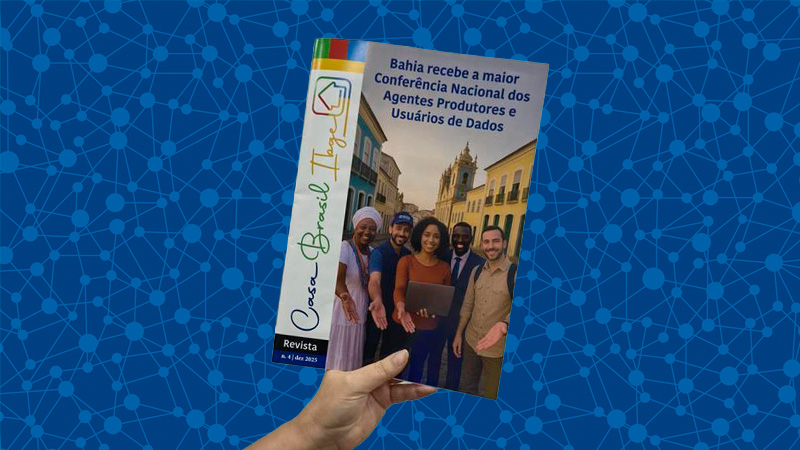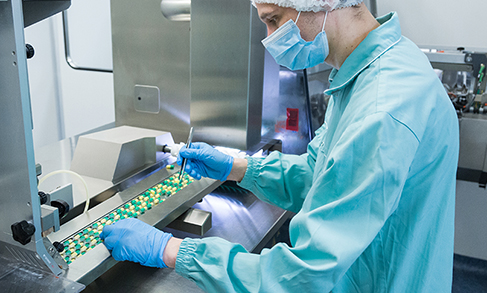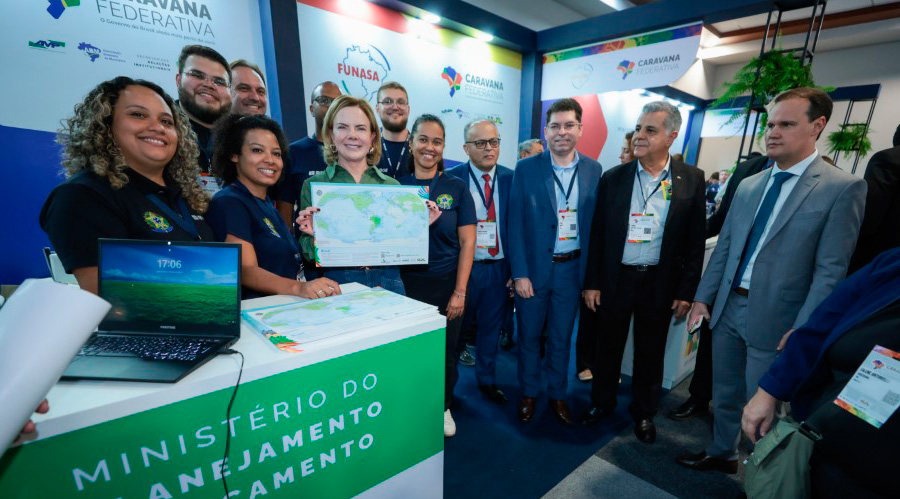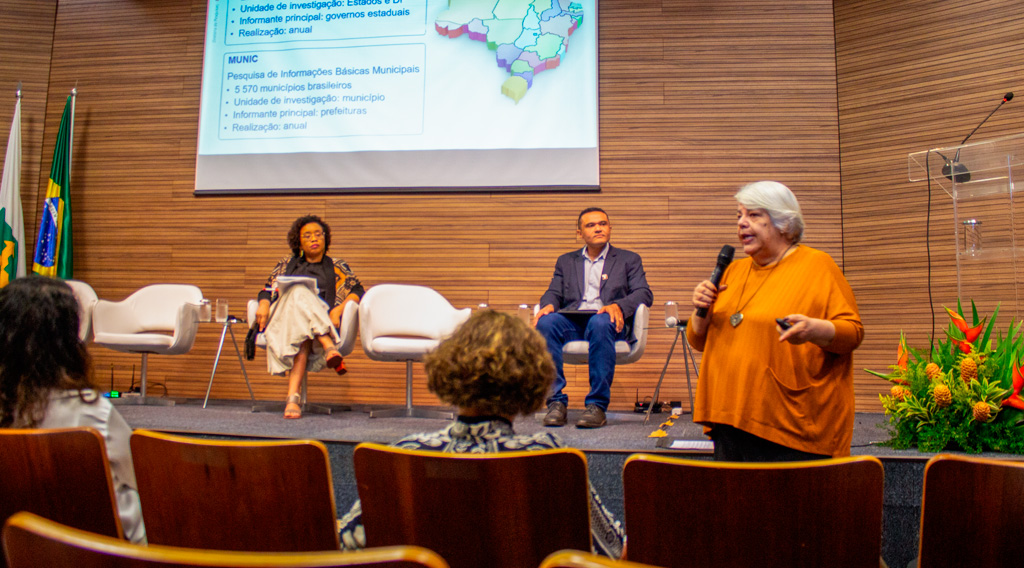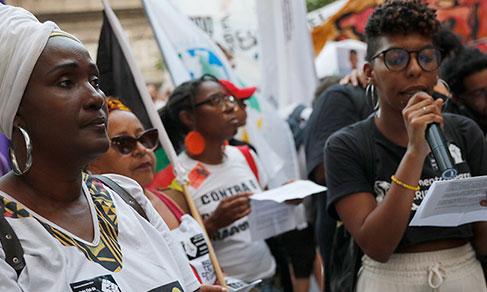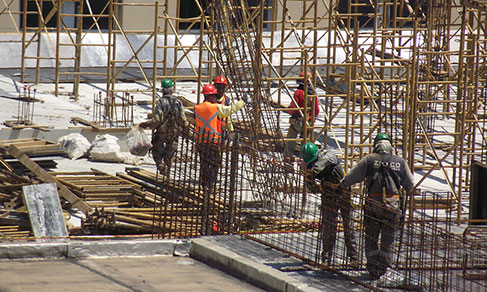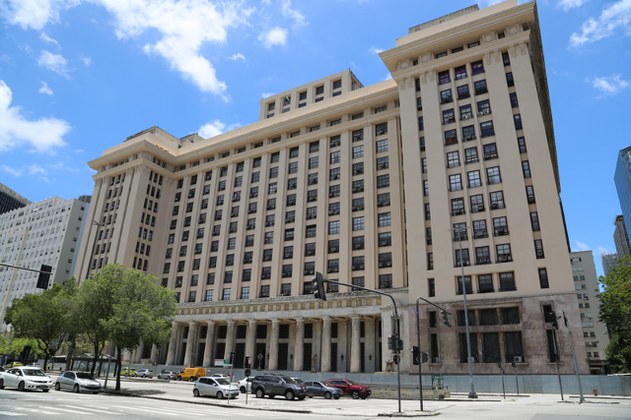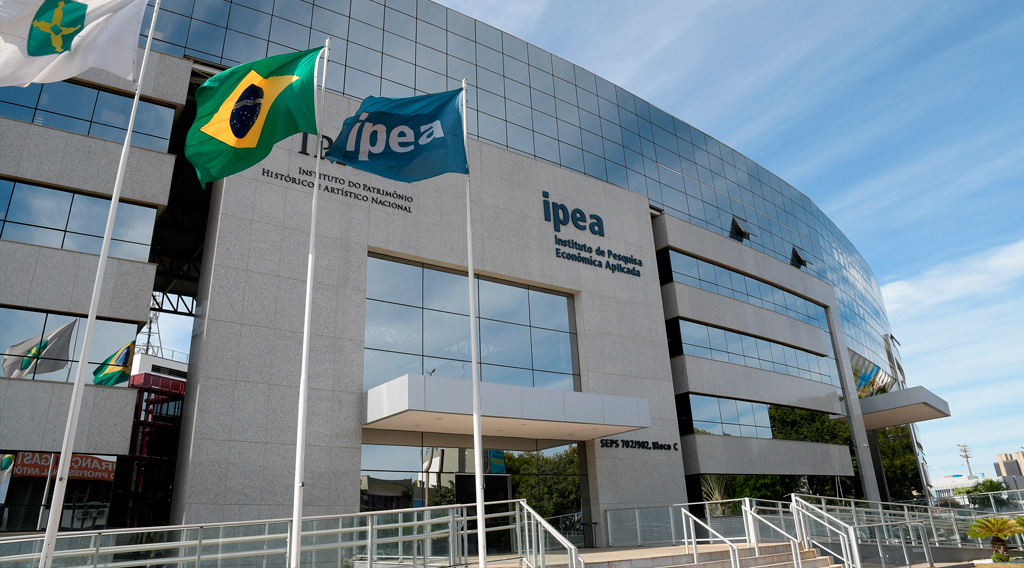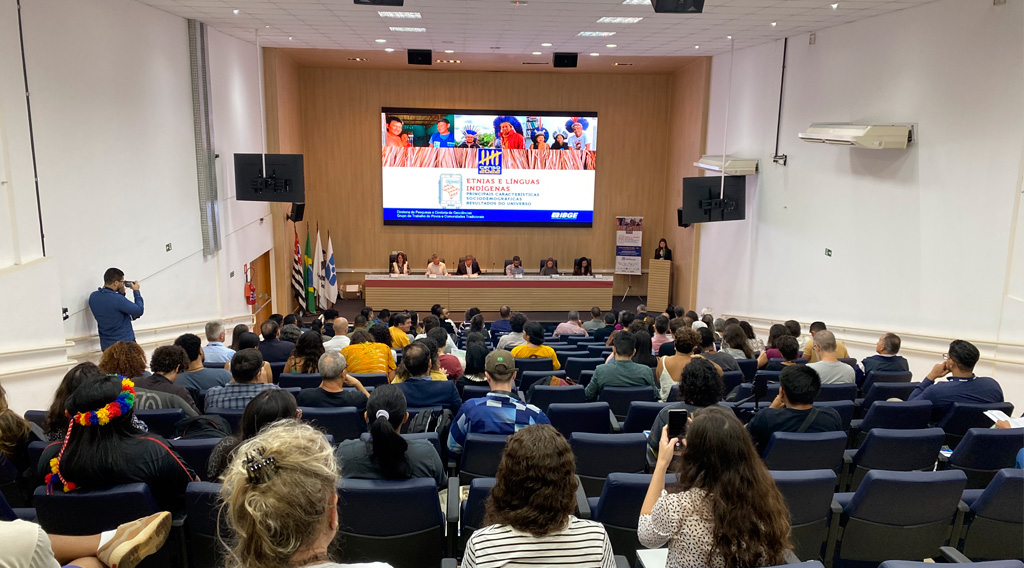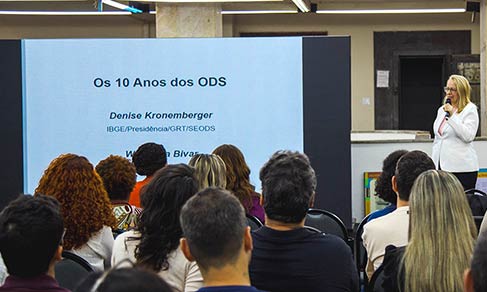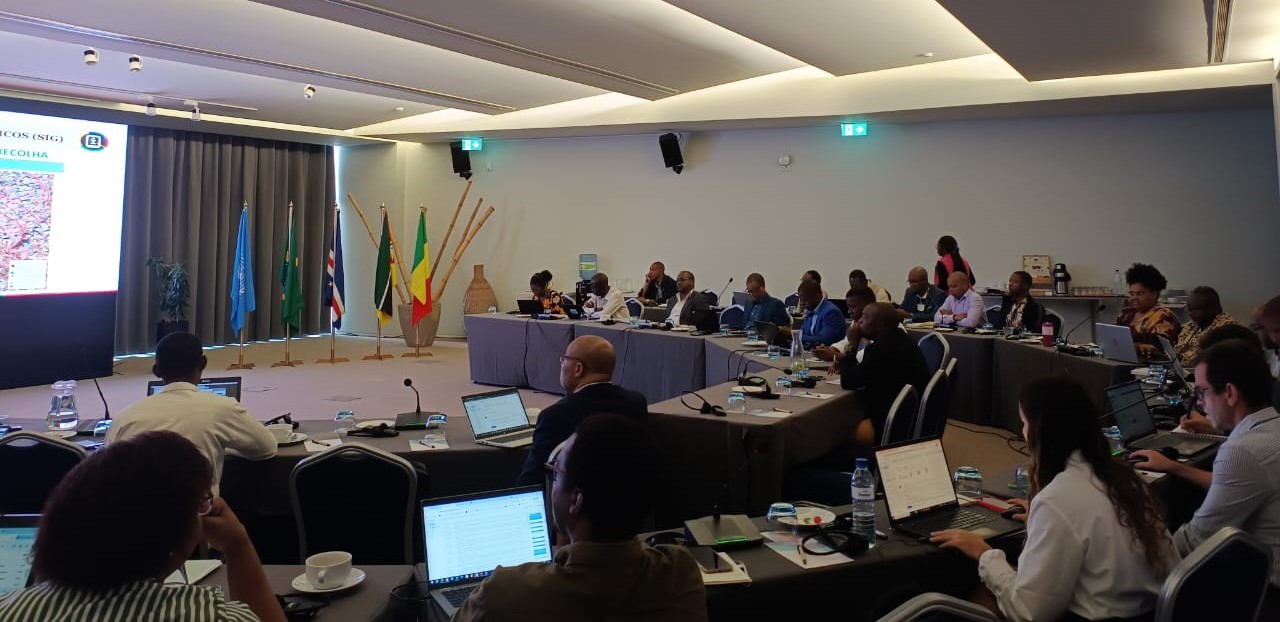PIM Regional
Industrial production grows in six of the 15 places surveyed in June against May
August 08, 2023 09h00 AM | Last Updated: August 09, 2023 06h41 PM
 The mining and quarrying industry was the main responsible for the performance of the industrial production in Espírito Santo - Photo: Leandro Grandi/Agência Vale
The mining and quarrying industry was the main responsible for the performance of the industrial production in Espírito Santo - Photo: Leandro Grandi/Agência ValeFrom May to June, Brazilian industrial production increased by 0.1%, with growth in six of the 15 areas surveyed by the Regional Monthly Survey of Industry (PIM). The highest increases were registered by Espírito Santo (4.6%), Rio de Janeiro (3.2%) and Santa Catarina (2.6%). Compared to June 2022, industry grew by 0.3% and positive rates were seen in nine of the 18 areas surveyed. In the cumulative rate over 12 months there was a change of 0.1%, with five of the 15 locations analyzed showing positive results. The data were disclosed today (8) by the IBGE.
In April, the results of the Regional PIM were released for the first time after the updates in the selection of the sample of companies, local branchess and list of products, in addition to the inclusion of three new locations: Rio Grande do Norte, Maranhão and Mato Grosso do Sul, totaling 18 locations. For the new locations there is still no information for the month on month comparison.
When comparing the first half of 2023 with the same period of 2022, there was a 0.3% reduction in national production, reaching eight of the 18 locations surveyed. Ceará (-6.2%), Rio Grande do Sul (-6.0%) and the Northeast Region (-4.5%) had the sharpest decreases.
“At the end of the first half of 2023, we see a very gradual move, showing great caution by the Brazilian industrial activity, as a result of the moderate measures taken by producers. This can be explained by the economic scenario, still faced with uncertainties that affect the production chain”, highlights Bernardo Almeida, PIM Regional analyst.
The highlight of June was the growth of industry in Espírito Santo (4.6%), totaling an expansion of 7.1% in three consecutive months of increase in production. This is the highest rate in the state since January of this year (18.0%). “The mining and quarrying industry, very active there, and the non-metallic mineral products sector were the main responsible for the performance of Espírito Santo's industry”, explains Mr. Alemeida.
Rio de Janeiro ranked the second place of the greatest advances in industrial production, reaching 3.2%, the most intense rate obtained by the industry of Rio de Janeiro since October 2022 (8.4%). This result interrupts two consecutive months of decline, a period in which it accumulated a loss of 3.1%. The mining and quarrying sector was the main positive influence, followed by petroleum derivatives and chemical products.
Santa Catarina (2.6%) comes next, recovering after the 1.7% drop seen last month. The food and clothing sectors were the most influential in Santa Catarina's industry.
São Paulo, as the largest industrial park in the country, had a drop of 2.7% from May to June, nullifying the expansion observed last month (2.7%). It is the most intense negative result since January 2023 (3.2%). The local Industry in the state had three consecutive positive results, when it accumulated a gain of 3.6%. “The sectors that had the most negative impact on industry in São Paulo were petroleum derivatives, the pharmaceutical industry and motor vehicles”, adds Bernardo. Thus, São Paulo is again below (-2.6%) its pre-pandemic level (February 2020) and is 24.3% below its highest level ever reached (March 2011).
Still regarding the declines, Ceará (-6.4%), the Northeast Region (-4.5%), Amazonas (-4.0%) and Paraná (-3.3%) presented the most expressive negative rates. Chemicals and basic metals had a negative influence on the industrial production in Ceará, which in May 2023 had grown by 1.4%. The drop seen in June this year is the most significant in Ceará since October 2022 (-13.4%).
Industry advances in nine of 18 areas in the interannual comparison
The industrial sector grew 0.3% compared to June 2022 and, regionally, nine of the 18 areas surveyed followed the positive result. It is worth noting that June 2023 (21 days) had the same number of working days as the same month of the previous year (21). The highest increases were registered by Rio Grande do Norte (16.5%), Espírito Santo (11.8%), Rio de Janeiro (11.7%) and Mato Grosso (10.5%).
The marked advance observed in Rio Grande do Norte can be explained by the activities of coke, petroleum products and biofuels (diesel fuel). In the case of Espírito Santo, the state benefited from the performance of mining and quarrying industries (pelletized or sintered iron ore and crude oil). In Rio de Janeiro, mining and quarrying industries (crude petroleum oils and natural gas) and coke, petroleum products and biofuels (liquefied petroleum gas, motor gasoline, fuel oils, basic lubricating oils and naphtha) favored the result. In Mato Grosso, food products (refined soybean oil and fresh or chilled beef) made the difference.
Pará (6.7%), Amazonas (6.6%), Goiás (4.7%), Minas Gerais (4.4%) and Pernambuco (3.9%) completed the list of states that had an increase in production in the June 2023 index.
On the other hand, Ceará (-14.6%) and Maranhão (-8.5%) had the most expressive falls. Industrial production in Ceará was impacted by the negative behavior in the sectors of leather articles, travel goods and footwear (synthetic material footwear, women's leather shoes and women's tennis shoes), chemical products (herbicides for plants and oxygen) and manufacture of apparel and accessories (panties, children's clothing and knitted accessories, shirts, blouses and the like, bras, dresses, long pants and shorts, dungarees, shorts, pants and the like). In Maranhão, the basic metals sector (aluminium oxide) was the main responsible for the result.
The Northeast Region (-7.3%), Rio Grande do Sul (-3.8%), Bahia (-3.6%), São Paulo (-2.4%), Santa Catarina (-1.2%) , Mato Grosso do Sul (-0.7%) and Paraná (-0.2%) were the other areas that dropped in this comparison.
More about the survey
PIM Regional has produced, since the 1970s, short-term indicators relating to the behavior of real output in mining and quarrying industries and manufacturing industries. It brings monthly indices for 17 states whose participation is at least 0.5% in the total value of Brazilian industrial transformation, and for the Northeast as a whole: Amazonas, Pará, Maranhão, Ceará, Rio Grande do Norte, Pernambuco, Bahia, Minas Gerais, Espírito Santo, Rio de Janeiro, São Paulo, Paraná, Santa Catarina, Rio Grande do Sul, Mato Grosso do Sul, Mato Grosso, Goiás and Northeast Region.
The survey results can also be consulted on Sidra, the IBGE database. The next release of the Regional PIM is scheduled for September 13th.



